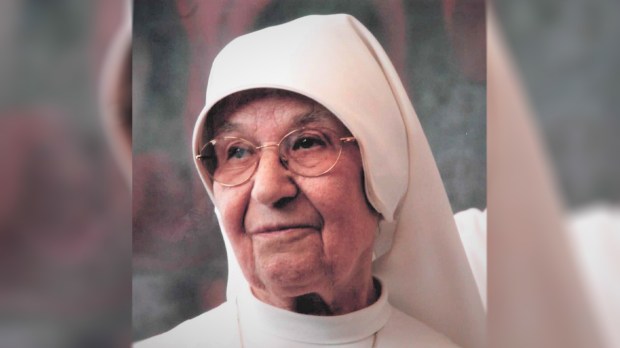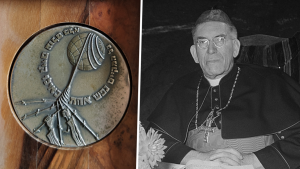On January 7, Sr. Luisidia Casagrande, a nurse at the clinical laboratory at the Borgo Trento Hospital in Verona for 68 years, died at the age of 104. She was called the angel of the laboratory, which she felt was her home. She managed to save its essential tools and materials during World War II with an ingenious ruse.
Lina (her given name) was born on June 20, 1918, in the province of Treviso to a family of humble origins. She took her vows at the age of 20 in 1938, but the call had come when she was only a young girl of not even 14. When she told her father of her intention to become a sister, he didn’t object; he did, however, advise her to think about it carefully “so you won’t have to regret it tomorrow,” reports Italian news outlet Corriere della Sera.
The beginning of her work as a nurse
The year after taking her vows, she obtained her diploma as a professional nurse with the permission of her institute, the Sisters of Mercy of Verona. She took a job that same year at the clinical laboratory; before her, there had never been any sisters working there. Mother Superior gave the director at the time permission to hire her.
“Sr. Luisidia’s personal and professional story is one of great stature,” Callisto Marco Bravi, general director of the Integrated University Hospital Company of Verona, told Corriere della Sera. “Sr. Luisidia is part of our progress. She started when analyses were still done manually [and continued working] until she used the most modern technologies.”
Sr. Luisidia was very focused on treating patients with love and dignity, as integral human beings, even when she was just dealing with samples to be analyzed. The Corriere reports that she was fond of saying, “Let us remember that in a test tube there’s first of all a patient and that in that test tube, no matter how little there is, there’s always a whole person.”
Awards and recognitions
Sr. Luisidia always dedicated herself to her work with deep commitment and great care, receiving numerous awards for this. In 1976 the Verona Hospital Institutes awarded her the gold medal of merit. In 2002 she received the city’s gold medal, and in 2007 she was awarded the honor of Knight of the Order of Merit of the Italian Republic.
Veneto Governor Luca Zaia thus described the sister’s example and professionalism to the Corriere: “In almost seventy years of service, she demonstrated a dedication that was the result not only of professional commitment but of a deeper motivation. She will remain a model for all those engaged in our healthcare system.”
Tricking the Nazis and saving the laboratory
There’s an episode that shows the strength and character of this sister who had a petite physique but a fiery spirit. She herself still recounted it with clear memories even when she was 100 years old. The Corriere reproduces her words:
It was 1943. In the morning I would arrive at the hospital before the Germans. So, day by day, I would take away material and small equipment, the necessary to perform the most urgent examinations. In the laboratory there were coffins from the municipality for the indigent. I filled four of them with that material. Then I called the hearse. The driver was a trusted person. We loaded the four coffins and I got in as well. Only instead of taking them to the cemetery, we took them to the military hospital in Piazzetta Santo Spirito where the patients of the Civilian Hospital were admitted.
Thus the laboratory didn’t miss a single day of activity to help the war-stricken population.
The bombing of July 5, 1944
On the night of July 5, 1944, she was at the military hospital when a bombing destroyed everything. Forty-five patients in the surgical ward and five of her sisters died. Sister Luisidia tried desperately to save them but was unsuccessful. Who knows how much pain she bore in her heart due to that day?
The sister lived her work as a true mission, a special way of caring for people and for the Lord, alive and present more than ever in the sick.
Who knows how many health workers have been inspired by her example, by her ability to work with love, because as Gibran wrote: “(…) when you work with love you establish a bond with yourself, with others, and with God.”



